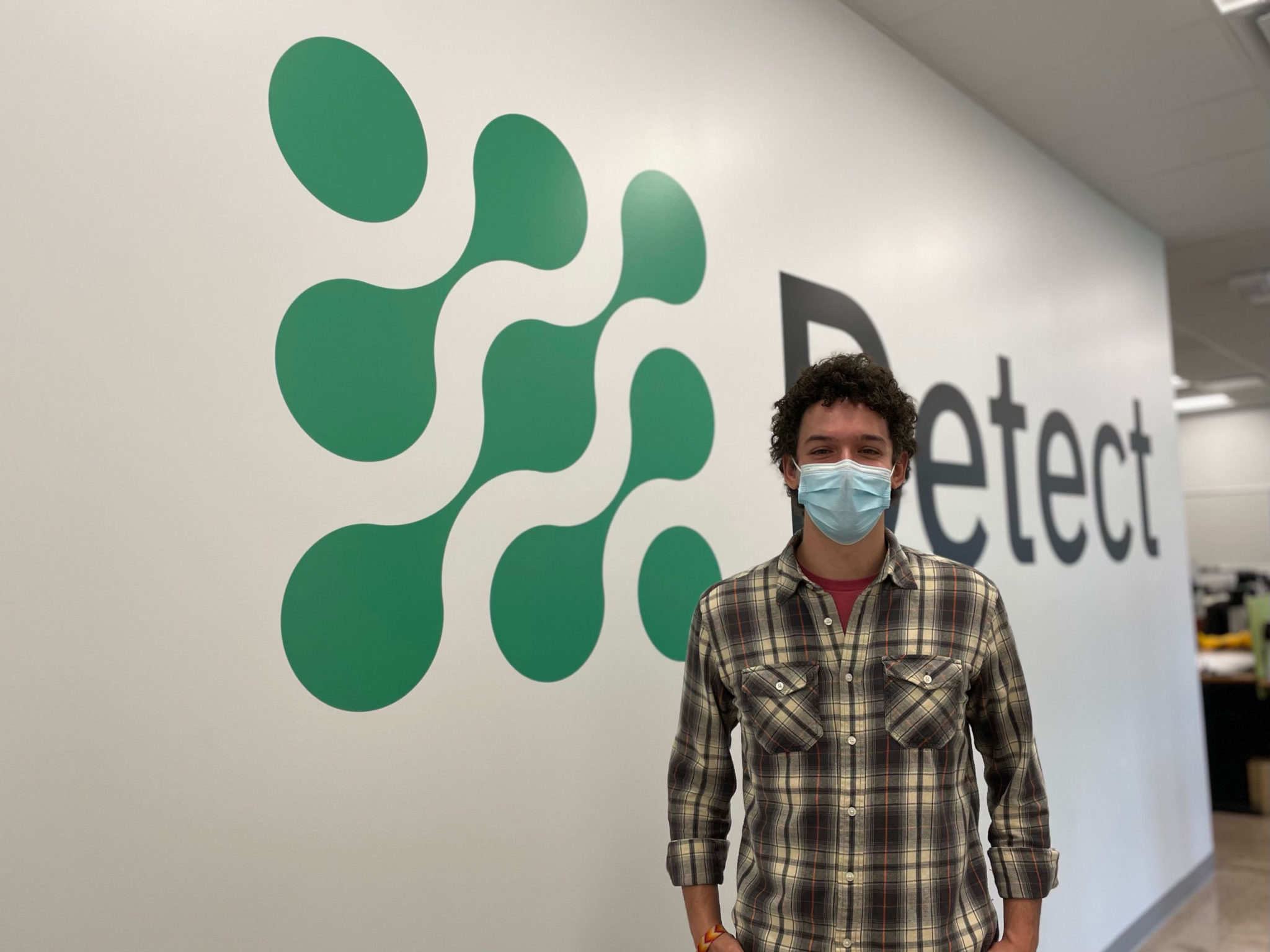
Courtesy of Thomas Blum
“I wish I had known that an experience like this was possible going into college,” Thomas Blum ’23 said.
From his apartment in Branford, Conn. Blum has been working and isolating since early summer. After reflecting on taking online courses in the spring and summer, he realized he was not as engaged with his academic requirements as he was during in-person learning. He opted to take a year-long leave of absence. Realizing the pandemic was an opportunity to gain unique experience outside of his biomedical engineering major, Blum started looking into internships in the biotechnology industry.
He came across the startup Detect, which is based in Guilford, Conn. and currently developing a quick and effective diagnostic test for COVID-19. Blum said a friend of his who is a recent Yale graduate told him about the opportunity. The company is housed within a larger incubator that focuses on funding biotech startups and hired Blum to work in its research department.
“Thomas jumped right in from the first day, and has been an absolutely invaluable team member,” Spencer Glantz, the head of research at Detect, said. “We talk to each other almost every day.”
According to Blum, he was initially worried about a lack of social interaction during his leave of absence, as he knew he would have to be isolated from most of his friends and family for an extended period of time because of the risk of spreading the coronavirus. He ended up sharing an apartment with a friend, Nick Begotka ’22.
Begotka is one of the few people outside of work whom Blum sees in person. Since Begotka is currently enrolled in classes, they rarely see each other during the day and often only spend time together at dinner. According to Begotka, they chose to stay in Branford both because of its proximity to campus but also because of its natural beauty. And the Detect lab building in nearby Guilford is right next to Long Island Sound, which allows Blum to have lunch on the waterfront almost every day.
“We’re still close enough where we could see our friends,” Begotka explained. “But we both really love nature and we’re kind of drawn to being a little more remote, living kind of close to the water and to different trails.”
Blum said that his work provides him with a social environment that compensates for being socially isolated most of the time. He spends most of the day working on-site in the lab building and values the “team mentality” that the group has established.
Due to the small but fast-paced startup environment, there is a lot of collaboration between the different departments within the company, Blum explained. There are around 20 people working on-site nonstop, which has led to really close relationships between the workers as they develop their new COVID-19 test.
To develop the diagnostic test, Blum and the team handle biological samples that they collect from local community members. He sometimes has to spend a whole day inside a tent collecting nasal swabs from people to later test them within a biosafety cabinet using their new test in the lab building.
“I think we have a big endeavor to establish this test and are motivated by the great need that we see all around us,” Blum said. “We’re a really tight-knit group, and I’ve met some absolutely amazing people who I’ve learned a lot from.”
According to Blum, even though it can be scary to handle potentially infectious nasal swabs, the team has enough precautions in place to keep its members safe. Glantz explained that because they are considered essential workers, all the scientists on the project are working on site, and this requires that the safety measures be as effective as possible.
“We do daily COVID testing of the entire team to make sure we are safe, and spot early and often any issue that comes up,” Glantz explained. “That’s been incredibly comforting.”
Over the last few months, Blum has worked on the test’s specificity — whether the test can correctly detect the virus or not.
As he looks forward to the next semester and the more distant future, Blum plans to continue working at Detect during his leave but might take a step back from his intense work routine to reflect on his experience.
“I learned that I loved being in the lab, especially when I had ownership over the work I was doing,” Blum said. “I loved the collaborative energy and product-driven mission of the startup environment.”
But even though Blum enjoyed the fast-paced startup culture at Detect, he wants to move to something different next summer, after his leave of absence.
He said his experience has forced him to reflect on the importance of having hands-on experience in an area of interest. The semester has also taught him about the associated complex work dynamics and stressors, as well as about spending time isolated from his community.
Blum shared that he is also grateful for the support and guidance he has received from his family and friends. He said he was only able to have this experience because of their support and understanding. He also hopes that in the future, more undergraduates will consider enriching their academic careers with a gap year experience.
“I really hope that for all the terrible impacts of the pandemic on the world, undergraduate students and on Yalies, maybe some good things can come out of it,” Blum said. “That it shakes up some students’ approach to their college years.”
Beatriz Horta | beatriz.horta@yale.edu







